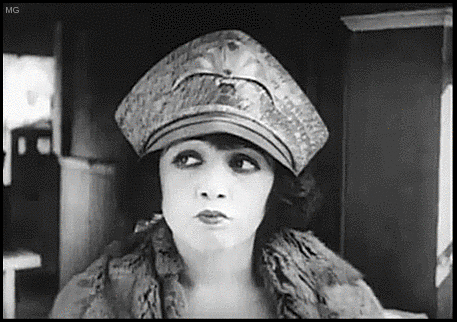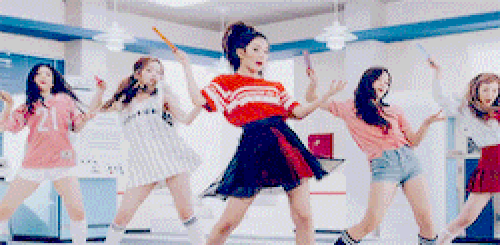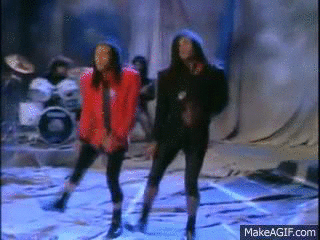Why Do Singers Lip-Sync?
Lip-sync, short for lip synchronisation. It’s where someone matches lip movements with the sound of someone else who is speaking or singing - often to a prerecorded track. In short, it’s essentially miming. By the way, Tom Holland lip-syncing to Rihannas Umbrella and Channing Tatum lip-syncing to Beyonce are the two greatest things on the internet ever. Who knew watching people not sing could be so entertaining! But it is not just used in fun lip-sync battles and drag acts; it is something that your favourite artist might be doing too. People often see it as a negative thing, but is it so bad?
Lip-syncing is a topic that people have firm opinions about, so I wanted to chat about it a little further - explore where it comes from and why people do it. Are some people just not fulfilling their job description? Is it cheating?
Well to find out, let's talk about where lipsyncing comes from. Lip-syncing came around as soon as the silent movie era was over and a generation of film stars who had never spoken before needed to speak and sing on screen. There are, of course, some fantastic classic movies with incredible singers, but some of your favourite voices might not belong to the people you thought they did. One of my favourite voices as a kid was Audrey Hepburn in My Fair Lady; I also loved the voice of Deborah Kerr in The King and I. It didn’t clicked until I read an article about it recently, their singing voices are the same person - and it’s neither of them! In fact, they’re voiced by Marni Nixon who also voiced Maria in West Side Story. Nope, not Natalie Wood. She has nine uncredited dubbing roles under her belt ranging from 1950 to 1998 - including a few high notes in Diamonds are Girl’s Best Friend for Marilyn Monroe! And we can’t do a video about this with telling the tale of Singing in the Rain - a film that depicts the uncredited dubbing of a famous movie star. In the movie Debbie Reynolds character Kathy steps in to provide the singing and speaking voice of a shrill voiced movie star played by Jean Hagan. However, in the scene when Debbie Reynolds' character is dubbing the singing for Jean Hagan, in real life Debbie was actually dubbed - by a woman called Betty Noyes. It’s a dubbing Inception.
But what about modern movies? Although there has recently been a demand for singers showing their real live voices, with live-action movie musicals, some movies still opt for dubbing. For example, in The Greatest Showman, Rebecca Ferguson isn’t the voice making you weep during Never Enough, the song is voiced by 2012 The Voice Contestant Loren Allred.
But why would they do this? Why not just use Loren or ask Rebecca to sing? Artistically, both of them are undoubtedly great at what they do. Combining them makes a fantastic superhuman performer with world-class singing and acting. Maybe the director's vision was that Loren was the perfect voice but (without knowing her or her acting skills) was just more of a singer than an actor or the other way round. Maybe they just wanted to find a way to make it work with the person they wanted. And it wasn’t the only artistic license taken with this song, for one, the character in the script is a representation of an opera soprano, but not just any opera soprano, Jenny Lind, one of the most highly regarded opera singers of the 19th century. I can’t find any clips of her singing because, you know, it was the 19th Century. However, I really doubt she sang in the contemporary belted mezzo-soprano style we hear in the film! But it’s not just down to artistic licence - people love to see the faces they know. A star-studded cast, whether they can sing or not, is what sells movie tickets and at the end of the day making movies is business. Although both Loren Allred and Rebecca Ferguson are phenomenal performers, I can also understand why some people are annoyed that they don’t cast a person who can do both. Because people work hard on being able to do both! I certainly know of some lesser known performers who can sing and act.
But this is the movie business. It’s different; it’s about creating a story in the most effective way and they’re actors, not singers. What about the music business? Surely that has to be real?
We will get to lip-syncing in live music but first, let's just clear up some things in music videos. Unless it’s a live album with a live show music video or you are Bruce Springsteen who famously recorded the audio for “Street of Philadelphia” live with the music video, these are almost always lip-synced to the prerecorded record. I get the same comment a lot on my reactions “, but they sang it better on the music video” - this is because it is prerecorded and edited! However, lip-syncing, in this case, allows all the cool artistic effects and production to make the end product great in a different way. For example, artists sometimes lip-sync to a sped-up track, to create videos with a slow-motion effect in the final clip, or a lip-sync slow-motion track, to give the opposite effect. Some artists even lip-sync backwards to give the effect that the singer is singing forwards while time appears to move backwards in his or her surroundings.
Okay, this is the part you want to hear about. Live music. Why would a singer mime over instead of performing live? Is this excusable? Let's first talk about the reasons people do this.
One place people often think in relation to lipsyncing is K-Pop, defined by its high energy dance routines. Singing needs a lot of breath control and heavy dance routines can be pretty unhelpful! If anyone watching has been to a Musical Theatre school, you will know how hard the Beyonce work-out is - where you go for a run and sing at the same time. If you are an artist who does these dance routines, you have to train like an athlete and fans of K-Pop are often as much a fan of the dancing as they are the singing.
And this style has not been just confined to K-Pop and Beyonce. Artists in the 80’s like Michael Jackson and Madonna set new standards for pop music. Their live shows became spectaculars with dancing, singing, sometimes even aerial acts. It wasn’t just singing anymore, an era was born in which artists recreated the visual spectacle of the perfect lip-synced music video on stage. So much so, that singing in many cases has become secondary to the phenomenon. Remember the 1989 Milli Vanilli lip-sync scandal, where it turned out the two members of Milli Vanilli who in interviews had strong French and German accents did not in fact sing or rap in their distinctly American sounding tracks? I find this act interesting because people loved them until they found out that they had been tricked. Does it make it less valuable if it isn’t real? It’s a really sad tale so that to me says a lot about exploitation in the music industry; it’s worth taking a look.
However, it isn’t just about dance routines. After all, people have been found out for lip-syncing when they are standing still. There could be a couple of reasons for this. They might have loads of shows to do and want to save their voice, no one is superhuman. Recording in the studio is different from live, and people often give better performances and live shows can have all sorts of problems. But in the end, it all comes down to expectations.
People expect to hear what they heard on the record, and nowadays, the production makes singers on records sound so perfect that no human can reproduce that night after night. Artists are in a difficult situation here, vilified if they sing flat or imperfectly and equally vilified for auto-tuning or lip-syncing. Especially for an artist working their way up, it feels like there isn't room for mistakes. Someone like Lady Gaga has now found a new authentic image, flaws and all, and by the way, I think she is doing great work. But it’s taken her years to get to the point of which she can throw away expectations; she might never have gotten to where she was if didn’t adhere to some of the rules of perfection in the first place. The industry and fan expectations have created a culture where you have to earn the right to be flawed in your art.
So artists are getting up on stage day after day, with all these expectations from brands, their management and fans and you know what doesn’t make people sing better, crippling expectations. That’s when the mistakes happen. Consequently, some artists switch between live singing and lip-synching during a performance, particularly during songs that require them to hit particularly high or low notes. Once the problematic portion of the song has passed, the artist would then resume singing live — this happens in pop, in rock, in musical theatre — all genres.
And it’s not even always the artists calling the shots! It’s the management and record labels and TVs shows and venues. I’ve seen this myself. I worked as a vocal coach for a live TV gig. We did the warm-up with the artist, soundcheck and worked through the areas of the songs they wanted to. We work hard; they sound good. Then they go live. I listen. Perfection. But wait, this is too perfect, not a single nervous shake. They are lip-syncing, and they don’t even know it. They hired me to keep the illusion for the artist! When you are an artist, you are the product, and whoever was calling the shots there wanted to give the customer the perfect product. I would feel terrible for them if they got caught out and had bad press for something they weren’t aware they were doing.
Audiences often expect perfection, and whoever is calling the shots will try and give that to them. It takes a strong person to fight against these expectations and forge their authentic path. However, lip-syncing and autotune are just symptoms of a broader problem that is trickling down to all of us, and generations after us - the feeling that we all have to be perfect and anything else is unacceptable. We can’t decide what artists do, it’s up to them, but we can create a culture in which imperfection is okay. Imagine how much more creative people could be in that culture! Maybe we can listen to music with a kinder ear, allowing bad days and imperfections to shine through, because when we make mistakes okay, we make space for the brilliantly human, the heart wrenching and the genius.
IF YOU HAVE ANY QUESTIONS PLEASE GET IN TOUCH OR BOOK A LESSON HERE.








